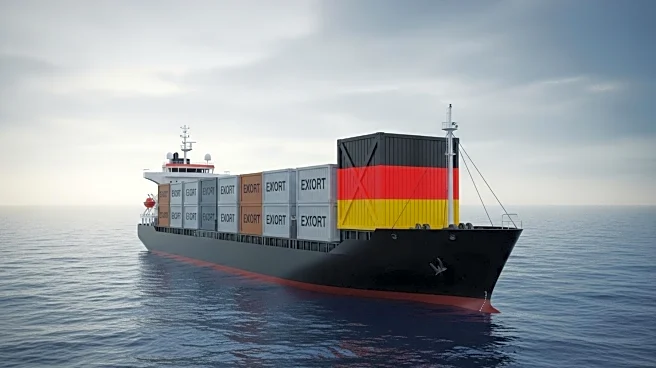What's Happening?
German exports unexpectedly fell by 0.5% in August, with shipments to the U.S. retreating for the fifth consecutive month. This decline contrasts with a predicted 0.2% gain, according to a Bloomberg survey. The drop in exports is attributed to President Trump's tariff campaign, which has impacted trade relations. Overall imports also decreased by 1.3%, resulting in a trade surplus of €17.2 billion ($20 billion), up from €16.3 billion in July.
Why It's Important?
The continued decline in German exports to the U.S. highlights the ongoing impact of trade tensions and tariffs on international trade. This development may affect Germany's economic growth and its trade balance, potentially leading to broader economic implications for the European Union. The situation underscores the importance of stable trade relations and the need for diplomatic efforts to resolve trade disputes, which can have significant consequences for global economic stability.
What's Next?
The decline in exports may prompt German policymakers to seek solutions to mitigate the impact of tariffs and improve trade relations with the U.S. Efforts to negotiate trade agreements or address tariff-related issues could be prioritized to support export growth. Additionally, monitoring the economic indicators and trade data will be crucial for assessing the long-term effects of trade tensions on Germany's economy.
Beyond the Headlines
The situation reflects the broader challenges faced by countries in navigating trade policies and maintaining economic stability amidst geopolitical tensions. The impact of tariffs on trade flows and economic growth highlights the interconnectedness of global economies and the need for collaborative approaches to address trade-related issues.










